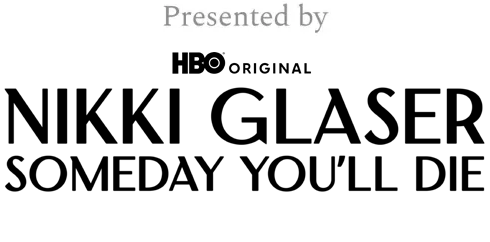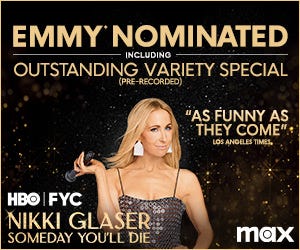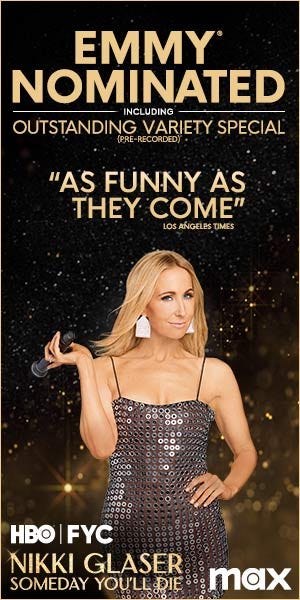Jonathan Nolan Sees a Future for 'Ambitious, Cinematic' TV
I talk to the director and EP of Prime Video's 'Fallout'; plus: Fall film festival scheduling drama
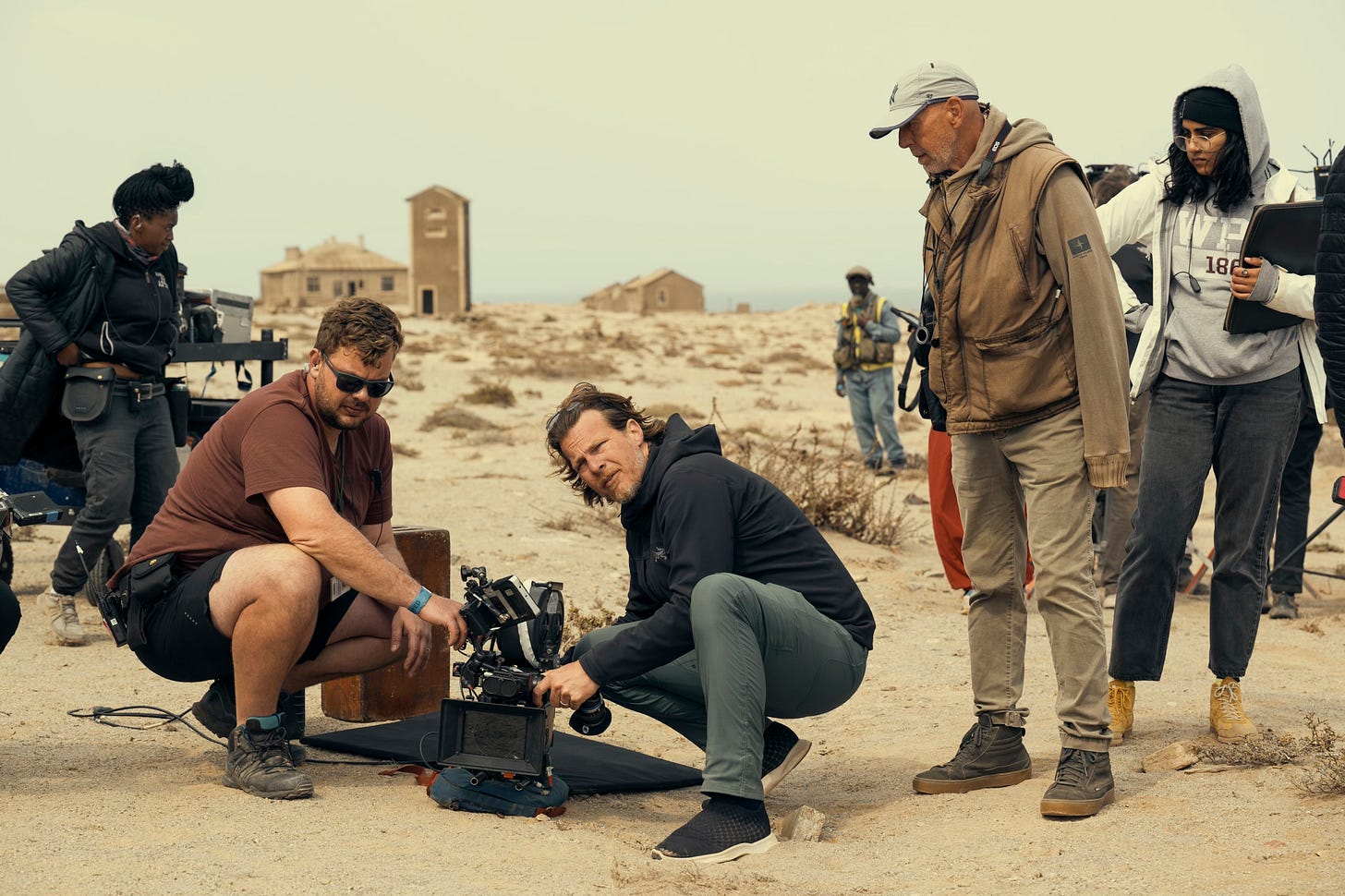
If you’re a Television Academy member, you have one very important item in your inbox: your ballot for choosing this year’s Emmy winners, which went out to voters today.
If you’re repping a film heading to a fall festival, on the other hand, you’ve gotten dozens of “urgent” items in your inbox. With both the Toronto and Venice film festival schedules released this week, it’s high season for freaked-out journalists and critics to grovel for premiere tickets, “secret” early screenings or maybe even a wink and a nod that some films aren’t as essential to catch as the rest.
One surprising hurdle for many is that Joker: Folie a Deux, one of the highest-profile premieres at Venice, won’t also be appearing at Toronto a few days later like fellow entrants Queer and The Room Next Door. That makes its scheduled Sept. 4 premiere a headache for the press pack already on their way to Toronto — and who don’t want to wait for Joker’s Oct. 4 release.
For my part, I won’t be at Venice, but I will be at Toronto. I’ve already rescheduled my flight home so I can catch either the Sept. 10 premieres of Jason Reitman’s Saturday Night or Hailna Reijn’s Babygirl with Nicole Kidman — I can only choose one! Babygirl is a title I’ve been hearing great early buzz about, while Saturday Night is a high-profile take on the debut episode of Saturday Night Live in 1975.
Reitman is a hometown hero bringing a starry new project, and I fully expected his film to snag one of the fest’s coveted weekend slots— maybe even, um, Saturday night?? But that just goes to show you how busy this edition of TIFF is. To the Air Canada customer service line I go.
Impossible choices are as essential a part of film festivals as gossiping in line and crowded after-parties. Last year, the strike-impacted TIFF schedule felt so light, thus it’s wonderful to see a crowded lineup. I can’t guarantee I’ll still be saying that when I’m forced to choose between Justin Kurzel’s The Order and Gia Coppola’s The Last Showgirl in a few weeks — but I promise I’ll still mean it.
Ahead, I’ve got a conversation with an Emmy nominee who knows what it’s like to be at the center of film festival buzz. It’s been 24 years since brothers Christopher and Jonathan Nolan got their big break at the Venice Film Festival with their film Memento, and it’s safe to say things have gone pretty well for them since. Now Jonathan is one of the executive producers behind Amazon’s splashy adaptation of the video game Fallout, which has given him faith that the industry can still get behind the kind of expensive and ambitious TV shows he wants to make.
An Interview with Jonathan Nolan
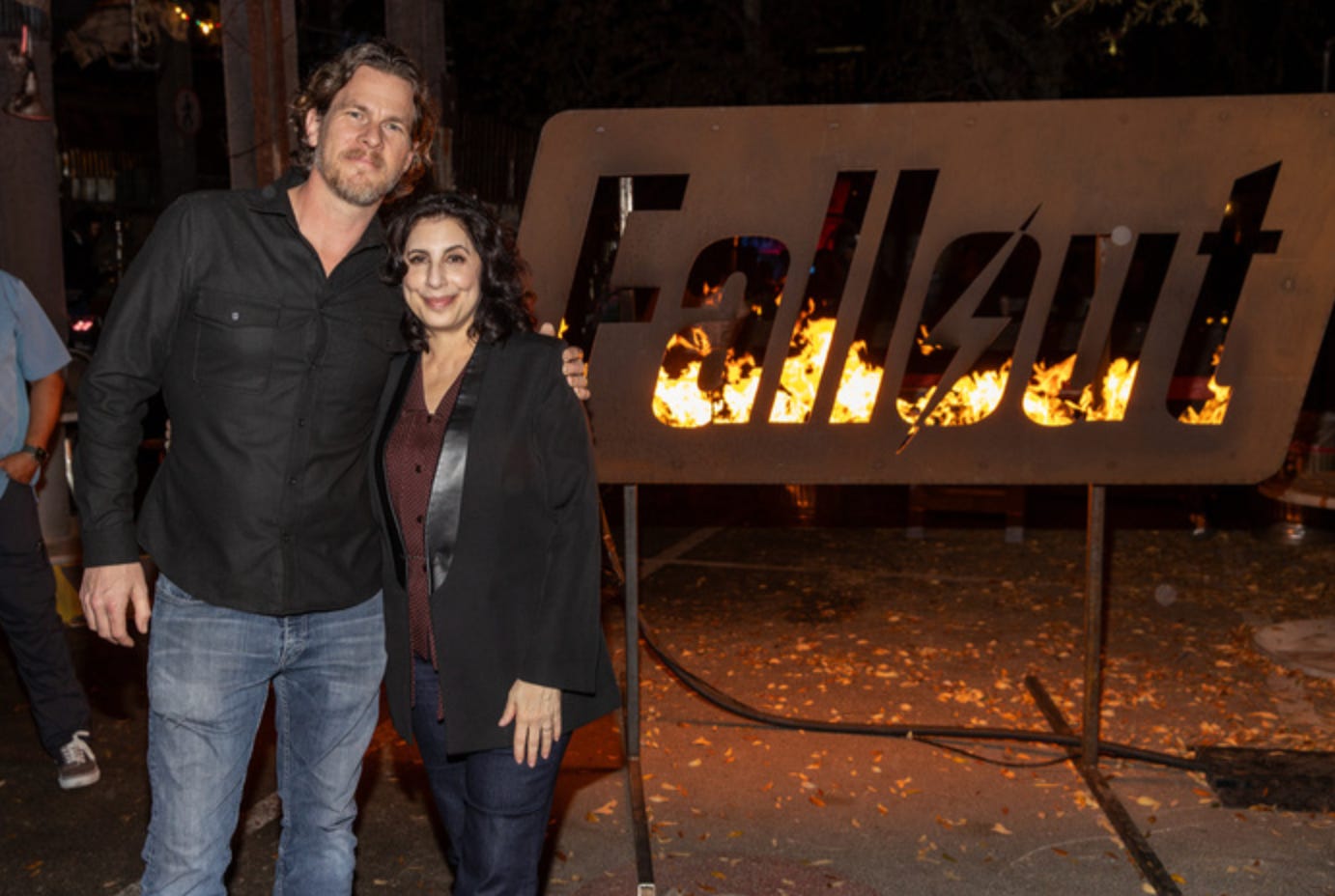
Jonathan Nolan — whom everybody, even interviewers who are worried about acting overfamiliar, calls Jonah — has learned something about humanity since he started making Fallout; namely, there are a lot more video game fans out there than you realize.
“The weird thing about gaming is that gamers don’t talk about gaming,” says Nolan, who directed the first three episodes is season one and is also executive producer. The youngest of three Nolan brothers, Jonah, now 48, remembers that when growing up in England and later Chicago, “Chris and I had Pong when we were kids— and that’s it. So in my lifetime, I’ve watched the emergence of the entirety of that art form. I’ve seen the whole damn thing, and yet it’s still this kind of weird shared secret with people. Fallout’s been an awful lot of fun, realizing how many Fallout fans there are in the world.”
Gamers may not have been sharing their secrets with the rest of us, but the gaming industry profits were impossible to miss, and Hollywood has infamously struggled for decades to successfully adapt video games to television or film. Then, as Nolan puts it, The Last Of Us “showed what was possible with great filmmaking.”
The Last of Us debuted on HBO just as Fallout was headed into production, but there was no real concern about a copycat effect. Despite also being set in a post-apocalyptic America, Fallout has a sardonic and darkly funny tone entirely its own, setting ultra-violent fights to chipper '50s songs and following a protagonist who approaches the grimmest of tasks with a determined “okey-dokey.”
It’s the closest thing to a comedy that Nolan has ever made, he admits, having collaborated with his brother on the Batman films and Interstellar and gotten his start in television with the procedural Person of Interest and the sci-fi Western Westworld. “I don't think I ever felt like I nailed the tone,” Nolan says. ”For me, it was white knuckling the whole way through in terms of that.”
The moment he figured it out, he says, came in Namibia, which stood in for some of Fallout’s blasted desert landscapes. Nolan was on set with Graham Wagner, who created the show alongside Geneva Robertson-Dworet, and whom Nolan credits with supplying the show’s comic spirit. Watching comedian Jon Daly improvise his scenes as a frontier snake oil salesman, Nolan says he and Wagner turned to each other and settled on the show’s tenor: “It’s Tarkovsky with jokes.”
Fallout has a bit more action than, say, Solaris, but it has hit the sweet spot for high-low television, earning both blockbuster ratings and 16 Emmy nominations; as executive producer, Nolan shares the best drama series nomination. It’s also a triumph for Nolan as a director, who grew up alongside one of the most acclaimed directors alive and for years worked only as a screenwriter. But after directing episodes of Person of Interest and Westworld and now the first three episodes of Fallout, the younger Nolan has come to see directing as a way to set up the parameters for the entire series as it goes forward.
“It sets the tone early in the process in terms of how we do things,” Nolan says. “What are the values we try to have on set? What are the technologies we're going to use? If you can set the tone yourself, you get everyone relaxing a little bit when they realize that it's a thoughtful, careful group of professionals and that they're in good hands.”
When the lavish, ambitious first episode of Westworld premiered in 2016, television was in the midst of an expensive content boom that showed no sign of ending. When Nolan was pitching his equally large-scale adaptation of Fallout, on the other hand, “the received wisdom was that this kind of show was done.”
Given the Emmy success of not only Fallout but also FX’s Shogun — another immaculately produced drama with the budget to match — Nolan sees a brighter future for the kind of “big, ambitious, cinematic shows” he loves to make.
“We think and hope that there will always be room for this kind of massive worldbuilding,” he continues. “It’s not the most expensive show that Amazon makes. It’s not the most expensive show that anyone makes. It’s a big show. I think for us, it’s a big robust defense of maximalism in television.”



